March 2024 in “International journal of molecular sciences” Three specific genetic variants cause severe skin issues in children with EBS, highlighting the need for early genetic screening.
5 citations,
June 2020 in “Medicine” A patient with a rare disease had a unique genetic mutation linked to their symptoms.
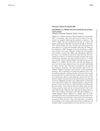 June 2023 in “British journal of dermatology/British journal of dermatology, Supplement”
June 2023 in “British journal of dermatology/British journal of dermatology, Supplement” Madam C.J. Walker became the first self-made female millionaire in the USA by creating a successful hair care product for Black women.
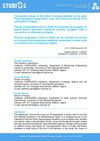 December 2024 in “STUDIES IN ENGINEERING AND EXACT SCIENCES”
December 2024 in “STUDIES IN ENGINEERING AND EXACT SCIENCES” Solar drying is the best method for drying pomegranate peels quickly and efficiently.
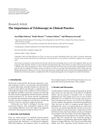 7 citations,
January 2013 in “Dermatology Research and Practice”
7 citations,
January 2013 in “Dermatology Research and Practice” Trichoscopy is a valuable tool for diagnosing and managing hair and scalp disorders.
 28 citations,
January 2012 in “International Journal of Trichology”
28 citations,
January 2012 in “International Journal of Trichology” Genetics affect early female hair loss, severity depends on duration, and low ferritin levels not significant.
 15 citations,
March 2020 in “Experimental and Therapeutic Medicine”
15 citations,
March 2020 in “Experimental and Therapeutic Medicine” The skin is a large organ that plays a role in the immune system.
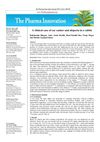 November 2017 in “Deleted Journal”
November 2017 in “Deleted Journal” The rabbit's ear canker and hair loss improved significantly with treatment.
 88 citations,
April 2011 in “Archives of Dermatology”
88 citations,
April 2011 in “Archives of Dermatology” Type 2 diabetes, bacterial scalp infections, and tight hairstyles like braids and weaves are linked to a higher risk of a scarring hair loss condition in African American women.
 57 citations,
March 2011 in “Pediatric Dermatology”
57 citations,
March 2011 in “Pediatric Dermatology” Nearly half of children with primary immunodeficiency disorders showed skin problems, often as the first sign of their condition.
 22 citations,
November 2018 in “Breast Cancer Research and Treatment”
22 citations,
November 2018 in “Breast Cancer Research and Treatment” The medications 5α-reductase inhibitors and spironolactone are generally safe for breast cancer patients on endocrine therapies and do not significantly increase breast cancer risk.
8 citations,
April 2021 in “Journal of Clinical Investigation” Finasteride reduces opioid use and withdrawal symptoms in animals.
 6 citations,
October 1993 in “The journal of the Royal Society of Health”
6 citations,
October 1993 in “The journal of the Royal Society of Health” Children's hair loss has many causes and requires careful diagnosis and personalized treatment, including emotional support.
 15 citations,
June 2018 in “Journal of Chromatographic Science”
15 citations,
June 2018 in “Journal of Chromatographic Science” Researchers developed a method to measure plant compounds in rat blood and found they are quickly absorbed and eliminated within 36 hours.
 47 citations,
March 2018 in “Journal of Pharmaceutical and Biomedical Analysis”
47 citations,
March 2018 in “Journal of Pharmaceutical and Biomedical Analysis” Researchers identified new compounds in Platycladi Cacumen and found variations in its flavonoid content, which could aid in its quality control.
 7 citations,
January 2018 in “Indian Journal of Pharmacology”
7 citations,
January 2018 in “Indian Journal of Pharmacology” Algerian Carthamus caeruleus L plant has anti-inflammatory properties, heals wounds effectively, and may help with hair growth.
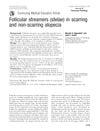 29 citations,
July 2008 in “Journal of Cutaneous Pathology”
29 citations,
July 2008 in “Journal of Cutaneous Pathology” Hair root sheaths are more common in non-scarring hair loss and help diagnose the type of hair loss.
 59 citations,
June 2008 in “Journal of The American Academy of Dermatology”
59 citations,
June 2008 in “Journal of The American Academy of Dermatology” The article explains the genetic causes and symptoms of various hair disorders and highlights the need for more research to find treatments.
 18 citations,
January 2008 in “Journal of The American Academy of Dermatology”
18 citations,
January 2008 in “Journal of The American Academy of Dermatology” Certain proteins and their receptors are more active during the growth phase of human hair and could be targeted to treat hair disorders.
 27 citations,
February 2017 in “Biomedicine & Pharmacotherapy”
27 citations,
February 2017 in “Biomedicine & Pharmacotherapy” White wax and policosanol from white wax effectively reduced hair loss and promoted hair growth in mice better than a known hair growth drug.
 3 citations,
June 2017 in “Journal of Biomaterials Applications”
3 citations,
June 2017 in “Journal of Biomaterials Applications” Keratin extract from human hair was found to promote hair growth in mice.
 11 citations,
August 2017 in “Journal of Chromatographic Science”
11 citations,
August 2017 in “Journal of Chromatographic Science” The new method is rapid, sensitive, and accurate for evaluating the quality of the medicinal herb Platycladi cacumen.
88 citations,
September 2003 in “Clinical endocrinology” Hormone treatment for transsexual individuals is effective but carries risks like thromboembolic events and mood changes, with most side effects being minor and reversible.
 7 citations,
January 2017 in “Clinical and medical investigations”
7 citations,
January 2017 in “Clinical and medical investigations” Suriname uses many plants for beauty, with potential for a beauty industry, but more evidence is needed for product effectiveness.
 67 citations,
January 2007 in “Climacteric”
67 citations,
January 2007 in “Climacteric” Estrogens and SERMs can help with skin aging, but their safety and effectiveness need more research.
 2 citations,
November 2013 in “Elsevier eBooks”
2 citations,
November 2013 in “Elsevier eBooks” Hormones control reproduction and are crucial for body balance.
 31 citations,
March 2018 in “Frontiers in Immunology”
31 citations,
March 2018 in “Frontiers in Immunology” The document concludes that anti-dsDNA antibodies are not unique to SLE and their use as indicators is doubtful, highlighting the need for better understanding and classification of the disease.
 39 citations,
July 2016 in “Biomedicine & Pharmacotherapy”
39 citations,
July 2016 in “Biomedicine & Pharmacotherapy” Cedrol from Platycladus orientalis leaves may promote hair growth effectively, especially in female mice.
 14 citations,
July 2016 in “Environmental Toxicology and Pharmacology”
14 citations,
July 2016 in “Environmental Toxicology and Pharmacology” Cedrol may prevent hair loss caused by chemotherapy better than minoxidil.
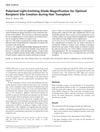 1 citations,
March 2006 in “Dermatologic Surgery”
1 citations,
March 2006 in “Dermatologic Surgery” Using a polarized LED magnifier during hair transplants makes creating recipient sites easier and may increase hair density.

























